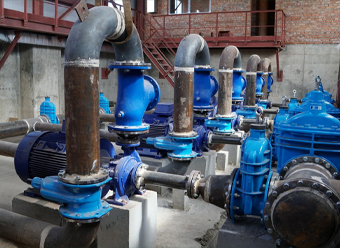English
- Afrikaans
- Albanian
- Amharic
- Arabic
- Armenian
- Azerbaijani
- Basque
- Belarusian
- Bengali
- Bosnian
- Bulgarian
- Catalan
- Cebuano
- Corsican
- Croatian
- Czech
- Danish
- Dutch
- English
- Esperanto
- Estonian
- Finnish
- French
- Frisian
- Galician
- Georgian
- German
- Greek
- Gujarati
- Haitian Creole
- hausa
- hawaiian
- Hebrew
- Hindi
- Miao
- Hungarian
- Icelandic
- igbo
- Indonesian
- irish
- Italian
- Japanese
- Javanese
- Kannada
- kazakh
- Khmer
- Rwandese
- Korean
- Kurdish
- Kyrgyz
- Lao
- Latin
- Latvian
- Lithuanian
- Luxembourgish
- Macedonian
- Malgashi
- Malay
- Malayalam
- Maltese
- Maori
- Marathi
- Mongolian
- Myanmar
- Nepali
- Norwegian
- Norwegian
- Occitan
- Pashto
- Persian
- Polish
- Portuguese
- Punjabi
- Romanian
- Russian
- Samoan
- Scottish Gaelic
- Serbian
- Sesotho
- Shona
- Sindhi
- Sinhala
- Slovak
- Slovenian
- Somali
- Spanish
- Sundanese
- Swahili
- Swedish
- Tagalog
- Tajik
- Tamil
- Tatar
- Telugu
- Thai
- Turkish
- Turkmen
- Ukrainian
- Urdu
- Uighur
- Uzbek
- Vietnamese
- Welsh
- Bantu
- Yiddish
- Yoruba
- Zulu
Telephone: +86 13120555503
Email: frank@cypump.com
Jul . 31, 2024 22:25 Back to list
Understanding the Importance of Basement Sewage Ejector Pumps for Effective Waste Management Solutions
Understanding Basement Sewage Ejector Pumps An Essential Guide
When it comes to managing wastewater in basements, sewage ejector pumps play a crucial role. Unlike standard sump pumps, which are designed to remove water from flooded basements, sewage ejector pumps are specifically engineered to handle human waste and other solids, making them essential for homes and buildings equipped with lower-level bathrooms or laundry facilities. This article explores the importance, functionality, and maintenance of sewage ejector pumps.
What is a Sewage Ejector Pump?
A sewage ejector pump is a type of pump used in plumbing systems to move wastewater from a lower elevation, such as a basement, to a higher elevation where it can connect with the main sewer line. These pumps are typically found in homes with below-grade bathrooms or laundry rooms, where gravity alone cannot facilitate proper drainage. The pump operates automatically, triggered by a float switch that activates when the wastewater reaches a certain level in the pit where the pump is housed.
How Do Sewage Ejector Pumps Work?
The operation of a sewage ejector pump involves several steps. Wastewater from fixtures, such as toilets, sinks, or washing machines, flows into a sealed pit or sump. As the level of wastewater rises, the float switch activates the pump. Once initiated, the pump uses a motor to draw the wastewater into a grinder or impeller system, which shreds solids and facilitates easier movement through the discharge pipe. The wastewater is then pumped upward through a discharge line, often routed to the home’s main sewer line or a septic system.
Why Are Sewage Ejector Pumps Necessary?
basement sewage ejector pump

The necessity of sewage ejector pumps arises primarily due to plumbing grades. In many homes, the sewer line is located at a higher elevation than the basement, making it impossible for wastewater to flow naturally. Without a sewage ejector pump, basement bathrooms would become inoperable, leading to potential hygiene issues and unpleasant odors. Furthermore, sewage ejector pumps help to prevent backflow, ensuring that wastewater does not re-enter the home, which can lead to extensive water damage and sanitation problems.
Maintenance and Care
Regular maintenance of sewage ejector pumps is essential to ensure their efficiency and longevity. Homeowners should periodically check the pump for any signs of wear and tear, such as unusual noises or failure to activate. It is advisable to inspect the float switch for proper movement and ensure that the discharge line is clear of obstructions. Additionally, the pit should be cleaned to remove any buildup of sludge or debris that may hinder the pump's performance.
To prolong the lifespan of a sewage ejector pump, consider implementing preventive measures. Avoid flushing non-biodegradable items or heavy solids down the toilet, as these can clog the system. It is also wise to schedule professional inspections and maintenance at least once a year. By addressing potential issues early, homeowners can avoid costly repairs or replacements.
Conclusion
Sewage ejector pumps are indispensable in homes with basement bathrooms, providing an effective solution for managing wastewater. Understanding the function and importance of these pumps, as well as maintaining them properly, can help homeowners ensure a sanitary and functional living environment. By prioritizing regular maintenance and adhering to best practices, one can significantly extend the life of a sewage ejector pump, avoiding the headaches associated with plumbing problems. Investing in this critical equipment is not only wise for managing immediate sewage needs but also essential for maintaining the overall health of your home.
-
Horizontal Split Case Pump with GPT-4 Turbo | High Efficiency
NewsAug.01,2025
-
ISG Series Pipeline Pump - Chi Yuan Pumps | High Efficiency, Durable Design
NewsAug.01,2025
-
Advanced Flue Gas Desulfurization Pump with GPT-4 Turbo | Durable & Efficient
NewsJul.31,2025
-
ISG Series Vertical Pipeline Pump - Chi Yuan Pumps | Advanced Hydraulic Design&Durable Construction
NewsJul.31,2025
-
ISG Series Vertical Pipeline Pump - Chi Yuan Pumps | Energy Efficient & Low Noise
NewsJul.31,2025
-
pipeline pump - Chi Yuan Pumps Co., LTD.|High Efficiency&Low Noise
NewsJul.31,2025










